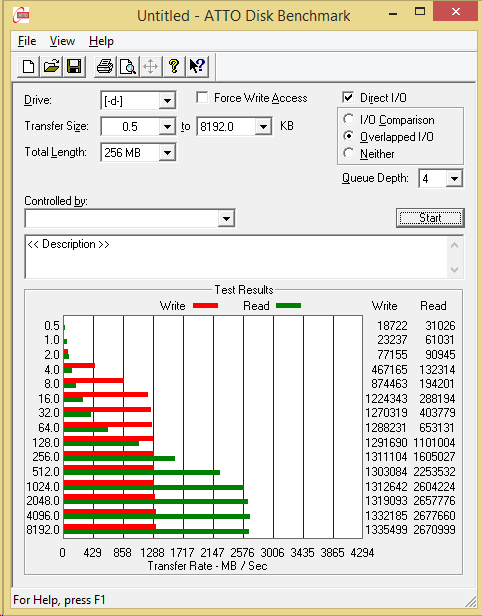As much as many might believe the transition to SSDs to be relatively painless process, it isn’t always so. The number of e-mails, forum posts and pm’s we have received indicates that, as easy as buying a pre-configured system with an SSD, moving from a hard drive to SSD is not always so. We addressed SSD migration some time ago in our article ‘SSD Migration or Fresh System Installation‘, however, we never quite spoke to testing to ensure your SSD is up to snuff; this article does just that.
This report provides the reader with a background on the benchmarks that we use, and may not use, as part of our website SSD test regimen. With each program, we will provide a bit of an explanation on its ins and outs, as well as drawbacks, and our choice of software is listed by that of which we seem to use most. Last but not least, a link for each benchmark will be provided for download or purchase, most benchmarks being free to download. These are located by clicking on the benchmark title.
ATTO DISK BENCHMARK VER. 2.47
ATTO Disk Benchmark is perhaps one of the oldest benchmarks going and is definitely the main staple for manufacturer performance specifications. ATTO uses RAW (or compressible) data and manufacturers prefer testing in compressible data as this achieves the highest performance results, although not always too realistic.
ATTO is free and the test we see here is from our Intel 750 NVMe SSD review. It is quick, easy and allows us the opportunity to ensure our SSD matches manufacturer specifications. Although popular, it does not provide a true to life indication of data transfer as it tests with ONLY compressible data. Media such as movies, photos and music is primarily incompressible and may move much slower than what we see here.
AS SSD BENCHMARK VER. 1.7
AS SSD Benchmark uses incompressible data in testing SSDs, essentially providing results that would be consistent with using the heaviest workload, thus lower speeds are expected. Transfer speeds (MB/s) are seen in the left picture below and IOPS (Input/Output Operations Per Second) are on the right.
AS SSD provides throughput, IOPS as well as true to life copy tests of a ISO, program and game. It is free and also provides a Score for the SSD which can be compared to others. These results are from our most recent Plextor M6V SSD Review.
CRYSTAL DISK BENCHMARK VER. 4.03
Crystal Disk Benchmark is used to measure read and write performance through sampling of random data which is, for the most part, incompressible. Performance is virtually identical, regardless of data sample so we have included only that using random data samples. Further, we are using the newest release of CDM where the queue depth, and even thread count, can be set. Take a look what doubling threads and increasing the QD to 512 does on the right. Amazing speed!
These results are from our Samsung SM951 RAID Report and are amazing speeds. This software is free and the newest version not only allows us to change between compressible and incompressible data, but also, it allows us to adjust the time interval and queues and thread count.
 The SSD Review The Worlds Dedicated SSD Education and Review Resource |
The SSD Review The Worlds Dedicated SSD Education and Review Resource | 


Nice article but that seems to be the old version of the ATTO Disk Benchmark. Latest version is up to 3.05. https://www.attotech.com/disk-benchmark/
Yes we are aware of that; the link directs you correctly. We used used previous results of our testing in many cases and this was one of those examples. Thanks for the kudos!
Very informative. Does the motherboard or CPU or memory affect the SSD bencmark at all?
It depends on the task at hand and taking a look at different reviews for a specific SSD is a great example. Although one might find minor deviations from board to board or CPU to CPU, the results are, for the most part consistent. It would be very rare for a board to be introduced that stands out from all others with respect to SSD performance.